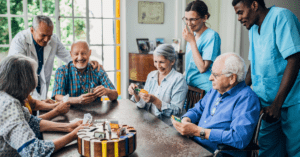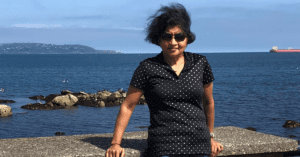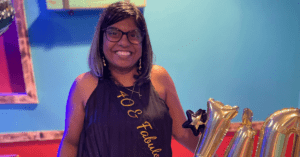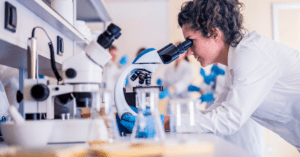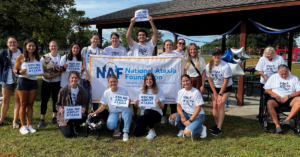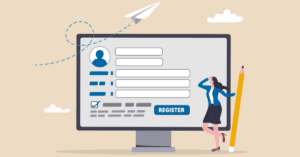Author: Mary Ann Peterson, NAF Research Associate
Many feel powerless when they are first diagnosed with Ataxia. Brain donation gives the donor and family the power to provide researchers knowledge to fight back against the disease. The examination of diseased brain tissue by a trained researcher remains the gold standard to gain a better understanding of the disease.
Have you ever wondered what the benefits are in brain donation? Brain research benefits all those who are diagnosed with Ataxia making brain donation an ideal way to achieve a positive outcome despite a difficult situation. Brain donation has the capacity to help find treatments and a cure!
Have you ever wondered what happens to the donated brains through NAF’s Brain Donation program? The majority of the donations are housed at the University of Florida (UF) and are used strictly for research on Ataxia. Tissue is sent to various Ataxia investigators across the country who are studying the disease. UF is establishing agreements with partners in the pharmaceutical industry who are in various stages of drug development for Ataxia research. Dr. Ranum heads the NAF Brain Donation Program at UF; she writes, “Autopsy donations are critical for understanding how Ataxia affects the brain and for guiding research efforts. Investigators use donated tissue to explore why neurons in the brains of Ataxia patients die and to develop therapies to improve the lives of patients living with Ataxia.”
About Brain Donation - People with a Plan in Place
You might also wonder about the thoughts and experiences of those who currently have a brain donation plan in place with NAF and those whose loved one has passed and has donated tissue for research.
Comments from those with a plan in place:
Gigi
I was finally diagnosed in 2006 with Spinal Cerebellum Ataxia. I found NAF on my first internet search right after my diagnosis and I learned valuable and current information about Ataxia from the NAF website. I signed up to receive the NAF newsletter and that is where I read about brain donations.
I understood the importance of research from my career in Medical Laboratory and Pharmaceutical Research, so I did not hesitate in signing up. The application was easy to complete. I appreciate receiving periodic emails to make sure all my information is up to date.
I have informed my husband and daughter about my wishes to donate and what to do when my time comes. I would encourage anyone thinking about brain donation to learn if this is the right decision for you.
Cheri
I decided to become a donor to help further the research and the efforts being made to develop a cure for Ataxia. I believe our bodies are just “dust in the wind”. It gives me great pleasure to know my brain may be of use in developing a cure for Ataxia.
The process to become a donor was quite simple (filling out a brief form, submitting it to the NAF, and updating it each year if there are changes in one’s contact information or health status). You or your loved ones may call NAF at any time to ask questions. It is best to enroll in the program as soon as possible (call Mary Ann Peterson at NAF TODAY @ 763.231.2750) as one never knows when this life will end. I feel completely at peace knowing I am enrolled in the pre-plan program, and the necessary steps can be taken by my surviving loved ones when I die. Taking care of enrolling in the program early allows plenty of time for loved ones to ask any and all questions, so they will be prepared to proceed at the time of death.
If this fits with your views, I encourage you to GO FOR IT! Your donation may perhaps find a cure for Ataxia and prevent this disease from affecting future generations!!
Lisa
I made the decision to become a brain donor because I want to help researchers discover further knowledge about the disease. The process to enroll in the program was extremely easy – it was one-page form, and I am glad to be reminded every year to update any changes or additions. Remember – you are helping researchers, you are helping future generations, and you are continuing to help even after you are gone.
Jesse Diehl – My Ataxia Story
I started showing signs of coordination problems in my mid 30’s. My older brother had been diagnosed earlier with SCA8. He has since died as a result of his condition. I was diagnosed with SCA8 in the year 2000. I worked as a mechanical engineer until Sept. 2015. I stopped working and went on disability in Feb. 2016.
Since 2016, I have been reinventing myself. I have taken over most of the domestic duties of our household and volunteer when I can. It is an ongoing learning process for me. I have been involved with Ataxia research studies and try to learn information about this progressive rare disease. In 2018, I started a support group in the Western New York area so I can learn what has worked for others and share my successes.
The decision to join the brain donor program was easy for me because I am an advocate for myself. I have two grown sons who are not showing signs of this disease, but I know that they have a 50% chance of having inherited the affected gene. I think it is important to help where I can. More needs to be learned about this disease and I think that I can help.
Pat Berry
I am donating my brain for research to, hopefully, help researchers better understand and provide answers for future generations, to get a more knowledgeable understanding of the disease, and to help.
About Brain Donation - Family Members Whose Loved Ones Were Donors
Comments from family members whose loved ones were donors:
Nelta
My husband, David, had Spinocerebellar Ataxia. Before he passed away, he decided to donate his brain to help with the research of his disease. My daughter contacted NAF and requested a brain donation form, which was sent with much needed information. After filling out the form and sending it back to NAF, we received an email from Mary Ann Peterson verifying she received it. Next, we contacted our chosen funeral home and explained our wishes and took copies of all conversations and forms from NAF. We also sent the name of the funeral home to NAF.
Within a short time, David went to Hospice and passed away within 24 hours. Hospice was informed of David’s wishes and was in contact with the funeral home, so retrieving the tissue would be done within a certain time frame. Everything went smoothly with no problems.
David was a selfless man and wanted to help others in life, and even in death. From my end, the whole process was simple and uplifting. My family and I miss David everyday—thank you for your help and kind words.
Betty
My husband’s long, slow physical and mental decline was noticeable in the mid to late 1980’s. He saw a neurologist who diagnosed olivo-ponto cerebellar atrophy.
In the mid 2000’s, I received a phone call from my youngest stepson as he was starting to exhibit similar symptoms. I have spoken several times with him and his mother over the years since then about my husband’s illness. They became active with the National Ataxia Foundation. As my husband’s health declined, they requested that when the time came that I donate my husband’s brain for Ataxia research. Having worked for many years at a medical school, I understood that such a donation would be invaluable to researching such a terrible disease. I was glad to do such a donation to further the understanding of Ataxia.
Pre-planning for brain donation was very helpful. I was out of town when my husband passed away in hospice care. Having pre-arrangements with the National Ataxia Foundation, a local funeral home, and medical school was a source of comfort especially since it fulfilled his request that his body be donated to science/medical research in addition to brain donation for Ataxia research.
Having made prior arrangements, everything went smoothly as I could do much over the telephone since I was out of town. I found the preplan forms from NAF to be easy to understand and fill out. Thank you.
Carrie Edge
The disease that my mother had crippled my family for generations. Knowing that my siblings and I are possibly next in line to get this rare disease, we are all very focused on finding a cure and participating in research.
When we were approached with this opportunity to help in finding a cure for this disease, we were eager to assist. However, brain donation came with a set of concerns that had to be addressed and naturally we were hesitant. Not only did I have to discuss this delicate subject with my mother who rarely wanted to focus on the aftermath of her passing, but I was concerned with how it would affect her physical condition for purposes of a viewing at her funeral. After careful consideration we decided that this would be a great opportunity to further support the advancement of SCA3 research. To my relief, not only did my mother agree to donate her brain tissue, but the entire experience was handled delicately and efficiently by all parties involved.
After my mother’s passing, she was transported immediately to the Health System via the funeral home. The procedure was then completed, and she was brought back to the funeral home in time for the viewing without any obvious physical signs of a procedure taking place. Since her passing, my family and I are grateful and find comfort in the fact that our mother had an opportunity to give one last final attempt at finding a cure for this rare disease and that even in spirit, she is able to continue fighting for a cure.
Allen
(Editor’s Note: Allen’s son, Ken, was a brain donor. Ken’s aunt has a plan in place with NAF for brain donation. Ken’s grandfather’s brain is at Massachusetts General Hospital. There is added value to have related brains available for research.)
Why donate? I think that it just felt like the right thing to do. NAF has a process for donating brain tissue and researchers can make use of brain tissue that will help future Ataxia research.
The staff at NAF and the University of Florida were wonderful to work with. They were very responsive and very human in helping families through this. They made sure that the nursing home, hospice, and I all knew what would be needed at the time of death.
Everyone made it clear that they were happy to talk about this while giving no pressure to make the donation. They understand the decision is very personal. They also want everyone who is wondering if this might be right for them to be comfortable, and if it isn’t right for them to be able to say, “No”. They are also very grateful for the families and the donors who say, “Yes”.
Richard
My wife, Judith’s, mother, grandmother, and an aunt all had or have SCA6. Judith saw what the disease does and thus took a DNA test to find out if she had SCA6. The test was positive.
About five years after taking the test, the Ataxia symptoms started and continued until her demise. The progression was as expected, but not enjoyable. She and I had discussed what her wishes were for her remains and she included a desire to donate her brain tissue for research.
After contacting the National Ataxia Foundation (NAF) and informing them of our desires, the process continued by NAF and went very easily. After her death, her brain was sent to the University of Florida (UF). The donations that are housed at UF through NAF’s Brain Donation program are used strictly for research on Ataxia. I was glad to hear that good news.
Bottom line: I would encourage anyone considering a donation to not hesitate to contact the National Ataxia Foundation for information about all aspects of the process of brain donation. I sincerely hope such research eventually finds a remedy.
Kathy
Kathy and Harry went to NAF’s Annual Ataxia Conference in Orlando in 2016. At a Birds of a Feather session, one doctor mentioned needing brain tissue for research. After the session, Harry made the decision to become a donor to provide researchers the necessary tools (brain tissue) to do their research. The majority of the tissue available was for the more well-known Ataxias and they needed tissue from the lesser known Ataxias. Harry felt strongly that his donating may help to find a cure for Ataxia.
Interested in Learning More About Brain Donation?
If you have ever wondered about brain donation, NAF understands how difficult yet important this decision is and we want to provide you with as much assistance as we can in helping you and your family members with any questions you may have. We are so grateful for the courage of each family member who helped their loved ones’ wishes of making brain donation a reality. We also thank those who shared their story with the Ataxia community.
If you are interested to learn more about NAF’s Brain Donation program, please do not hesitate to contact NAF at mary@ataxia.org.


